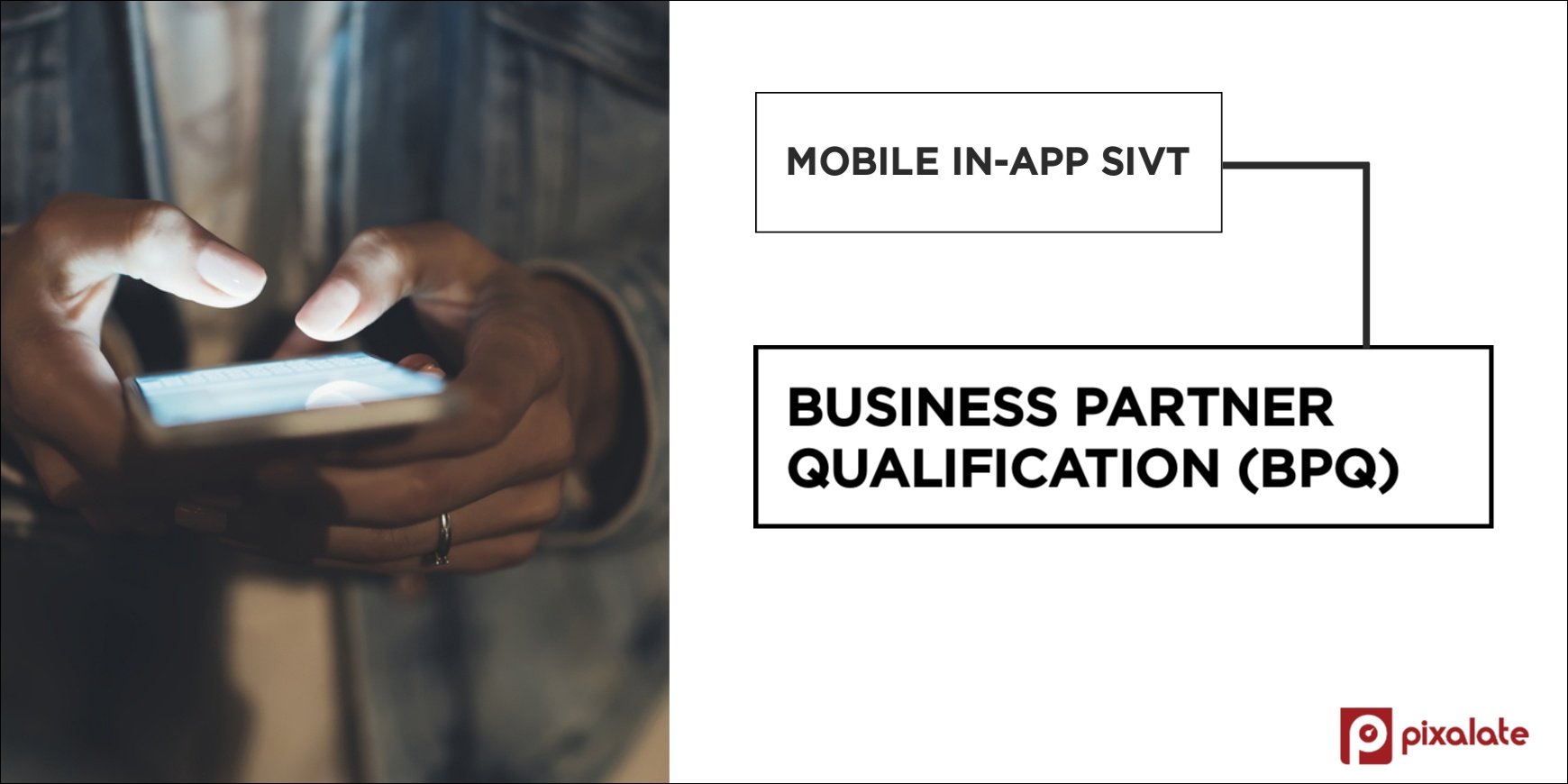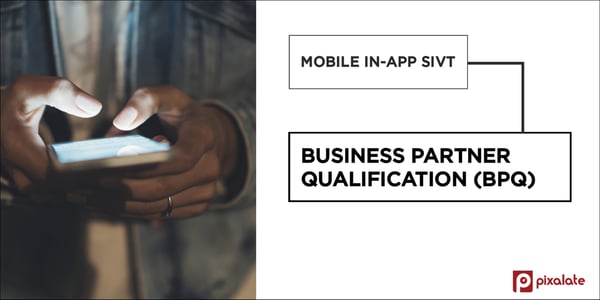
This post explores Business Partner Qualification (BPQ) as part of Pixalate's ongoing series detailing the MRC guidelines on Sophisticated Invalid Traffic (“SIVT”) within mobile application (in-app) environments.

Business partner qualification is the process by which an entity works to verify the identity, stature, and legitimate intent of the respective entity (or individual) in which they are engaging with. This process is designed to protect the entity from the potential business and operational risks associated to doing business with a party of ill intent; most notably as it pertains to the digital advertising ecosystem, those attempting to perpetuate ad fraud.
Within the confines of the digital advertising ecosystem, there are many individuals and entities who seek to benefit from the perpetration of ad fraud. However, it is ultimately the monetization of this IVT that is driving the perpetuation of ad fraud within the digital advertising supply chain.
This monetization is only achieved through the engagement of a legitimate entity operating within the digital advertising supply chain with an individual or entity perpetrating the fraud. Hence it is crucial that entities operating within the digital advertising ecosystem (ad servers, exchanges, networks, measurement vendors, etc.) develop and maintain an appropriate protocol for establishing whom they do business with. This protocol is designed to deter the perpetuation of ad fraud at the source while also protecting the entity from unwarranted influence over product suites (in the case of utilizing third-party vendors as part of the compilation of reported metrics).
In an effort to address the obscurity often associated with entities perpetrating fraud, the MRC IVT Guidelines established a business partner qualification process whereby digital advertising entities employ qualification and vetting procedures to establish the legitimate intent of the respective business partner.
The MRC IVT Guidelines defines a “business partner” as follows:
“A ‘business partner’ in this context means an organization that is part of the transactional chain associated with serving, capturing ad actions (e.g., clicks) or enriching ad impressions or audience measurement, and/or a organization originating the terms and conditions of the campaign that outsources these transactional chain functions.”
The MRC IVT Guidelines establishes three key stages as it relates to the business partner qualification process as follows:
The SIVT mobile in-app interim guidance establishes the consideration of mobile applications on a discrete level into the various business partner qualification vetting procedures presented above (e.g. initial qualification, ongoing monitoring, periodic re-evaluation/re-qualification). The interim guidance specifically outlines that these processes may involve determining application properties, configuration, and communication protocol (whether an app routes, directs, or receives traffic/communications to/from other apps or properties), as well as consideration of mobile application-specific traffic sourcing or extension arrangements.
Alongside the IVT risk assessment, Pixalate considers this to be one of the most pertinent procedural areas designed to deter the penetration of ad fraud in the digital advertising supply chain. Accordingly, Pixalate will provide a blog post series dedicated to the business partner qualification process aspect of the MRC IVT Guidelines.
*By entering your email address and clicking Subscribe, you are agreeing to our Terms of Use and Privacy Policy.
These Stories on Thought Leadership
*By entering your email address and clicking Subscribe, you are agreeing to our Terms of Use and Privacy Policy.

Disclaimer: The content of this page reflects Pixalate’s opinions with respect to the factors that Pixalate believes can be useful to the digital media industry. Any proprietary data shared is grounded in Pixalate’s proprietary technology and analytics, which Pixalate is continuously evaluating and updating. Any references to outside sources should not be construed as endorsements. Pixalate’s opinions are just that - opinion, not facts or guarantees.
Per the MRC, “'Fraud' is not intended to represent fraud as defined in various laws, statutes and ordinances or as conventionally used in U.S. Court or other legal proceedings, but rather a custom definition strictly for advertising measurement purposes. Also per the MRC, “‘Invalid Traffic’ is defined generally as traffic that does not meet certain ad serving quality or completeness criteria, or otherwise does not represent legitimate ad traffic that should be included in measurement counts. Among the reasons why ad traffic may be deemed invalid is it is a result of non-human traffic (spiders, bots, etc.), or activity designed to produce fraudulent traffic.”

